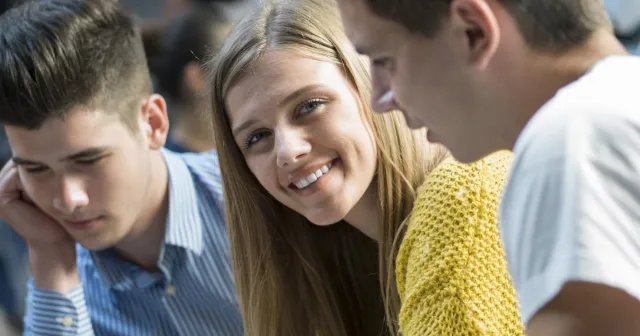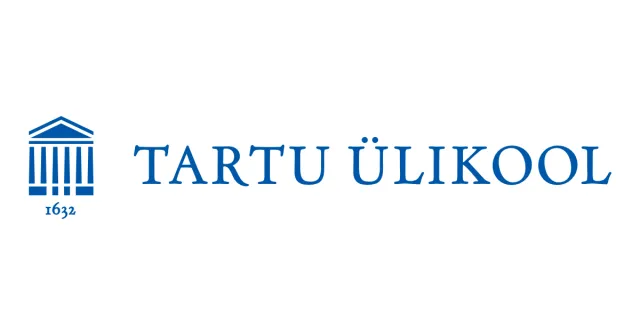Learning from Role Models in Adult Education
Reading time approx. 6 minutes - Read, like, comment!

(c) mohamed Hassan | Pixabay
Most people are shaped by role models. Actors, athletes, musicians or models have a great influence on our behaviour - with what they do, say and publish about it. Many of them convey values to which people orient themselves by taking them as role models. But what makes a good role model?
Who or what is a role model?
The term "role model" was coined by Robert K. Merton in the middle of the last century. Merton understood "Role Models" to be those models who are imitated as patterns for specific roles and distinguished them from "Reference Individuals" who are imitated for the general way of life. Albert Bandura developed the social-cognitive learning theory (also called learning from a model) in the early 1960s. This describes learning processes that are based on observing the behaviour of human role models (Bandura/Walters: 1963). Children and adolescents in particular orient themselves to role models and adopt their ways of thinking and behaving in their socialisation. In the first years of life, children learn above all from their parents and close caregivers what is important for survival and functioning in the world. During puberty, adolescents choose other role models whom they admire for their success or attractiveness (Stangl, 2021).
Communicating good values
Many role models are in demand as testimonials for messages with special societal, political or social value, such as the fight against climate change, racism, sexism and homophobia. One of the most famous role models of recent times is Greta Thunberg. Following her example, students all over the world took to the streets and protested. Under the slogan "Fridays for Future", almost 1.8 million people took part in demonstrations at the first globally organised climate strike on 15 March 2019. Ultimately, Greta Thunberg exemplified one of the more powerful social changes of recent years. Many people, including a conspicuous number of young girls and women, are adopting her stance worldwide and carrying Greta Thunberg's basic ideas forward. The example shows: People who convey good values and stand for their passion cannot be bad role models. It is good to have such a role model, as long as one does not try to be like the role model in everything, because role models are also "people like you and me" with all their characteristics and faults. Even Greta Thunberg is not praised for everything she says or does.
Influencers: More appearance than reality?
Most of today's - nationally known - role models are also influencers on social media; some of them have become role models for their respective network communities. They post videos and photos on YouTube, Instagram, TicToc and the like, talk about things in general and in particular, and in many cases reach an audience of millions. They come across as close relatives by speaking directly into the camera and thus establishing a direct connection with the other person. Influencers' posts often show an idealisation of their everyday life; therefore, it is important not only to look at the individual image that the influencers convey to their followers, but to pay attention to how authentic the person is as a whole. Many influencers have to make a living from their posts and are paid to put a product or an idea in the right light. This makes it all the more important to be able to separate exemplary behaviour from commercial interests. It is perfectly possible to stand up authentically for a good cause and still earn money as an influencer.
Adult learning with role models
In adult and further education, role models can be used i.e. where certain behaviours or values are to be evoked or reinforced through orientation on the model. In recent years, role models have played an increasing role in many areas of adult learning. Examples include integration into training and the labour market, integration of migrants and refugees, health education and family education. Some current activities serve as evidence:
Award of the German Continuing Education Day for role models in continuing education
The German Continuing Education Day Prize of Honour is awarded to people and initiatives that give the abstract concept of continuing education a concrete face and tell a special story of continuing education. The 2021 award winners in the categories "Learners", "Teachers" and "Supporters" stand for the motto of the 8th German Continuing Education Day "Mastering Crises. Securing know-how. Further education". The award winners are portrayed in videos.
https://blog.deutscher-weiterbildungstag.de/vorbilder-der-weiterbildung-2021-geehrt/
RefugeesIn
What drives people to flee their home country and how do they succeed in really "arriving" in another federal states, in belonging? The Erasmus+ project RefugeesIN aimed to promote intercultural dialogue, combat discrimination against refugees and support their social inclusion. RefugeesIN promotes social inclusion through media, especially through films and documentaries that show possible role models by and for refugees. Refugees from twelve different countries of origin tell the story of their integration in the project of the Hamburg Adult Education Centre. This has resulted in a comprehensive modular learning package.
https://www.refugeesinproject.eu/de/
Building Social Bridges through Entrepreneurial Thinking
One of the aims of the Erasmus+ project is to contribute to strengthening the social capital of migrants through entrepreneurial thinking and to improve their chances of achieving the goals they have set themselves. In numerous videos and interviews, migrants from 5 European federal states are portrayed and provide examples of successful social inclusion. The videos are available on the project's YouTube channel in different languages and with English subtitles.
No pain, no gain
Many role models, especially athletes or artists, follow their passion. However, their success is also the result of hard and long work: no role model has ever fallen from the sky, and success is usually built on experience, training, perseverance and also a little luck in the right place. Good role models know this and will convey this attitude alongside the values they represent - especially in adult education.
Literature
Stangl, W. (2021). Online Lexikon für Psychologie und Pädagogik. Keyword: Vorbild. https://lexikon.stangl.eu/8458/vorbild (07.06.2021 / in German language only)
Albert Bandura, Richard H. Walters: Social Learning and personality development. Holt, Rinehart and Winston, New York NY 1963.
About the author
Tino Boubaris works as a project coordinator at the Verein Niedersächsischer Bildungsinitiativen e.V. (Association of Lower Saxony Education Initiatives) in numerous European projects and networks in the adult and vocational education sector. He also advises associations and initiatives on organisational and funding issues. He volunteers as chairman of the association Bildungslabor e.V., which develops and implements innovative projects at the interface of art/culture/education. Since summer 2017, he has been active as a German ambassador for the e-Platform for Adult Education in Europe (EPALE).
Kommentaarid
Thanks
Dear Salome
Thanks for you kind words! I am pleased that you found this blog useful.
Please read as well the good practice examples presented by Dörte in her comment below.
Best regards
Tino
- Kommenteerimiseks logi sisse või registreeru
Lernende als Vorbilder - Beispiele
Danke für den sehr interessanten Beitrag. Als Ergänzung hier noch Hinweise auf Aktionen, in denen Lernende ihre Lernwege (mit allen Hürden und Sprungbrettern) beschreiben und so Vorbildfunktionen einnehmen können.
- AONTAS Podcast: Every Day I’m Learning https://www.aontas.com/learner-voice/aontas-podcast
- AONTAS Learner Story: https://www.aontas.com/learner-stories/
- Festival of Learning, unterschieldiche Awards für verschiedene Lernsituationen wie 'Learning for Work Award', 'Return to Learning Award', 'Outstanding Individual Learner Award' https://www.festivaloflearning.org.uk/2020-award-winners/
Alles sehr inspirierende Beispiele.
- Kommenteerimiseks logi sisse või registreeru
Danke
Danke, liebe Dörte, für die vielen guten Beispiele!
- Kommenteerimiseks logi sisse või registreeru
Influencer*innen als Vorbilder
Ich finde den Exkurs auf die Influencer*innen spannend. Inwieweit sind die eigentlich eher Reference Individuals als Role Models?
- Kommenteerimiseks logi sisse või registreeru
Sowohl als auch, denke ich
Natürlich gibt es Follower, die die Lebensweise von Influencer*innen nachahmen. Andererseits gibt es auch viele Influencer*innen, die ihre Position z.B. als Testimonials in den Dienst einer guten Sache stellen und so zu Vorbildern werden können. Es gibt nichts Gutes, außer man*frau tut es :)
- Kommenteerimiseks logi sisse või registreeru





Role model for blog writing
Hello, Tino Boubaris.
Thank you for this useful blod about role models in adult education.
I really enyojed it and loved the structure of this blog. It's a great example how to write a useful blog. In each article you touched an important theme - first role model in general, then in social media, after that in adult learning process.
New revelation for me was that RefugeesIn project. It makes me think that in our every day there are ways that we can try to make a change in some social problems.
I hope that we all are or will be good role models in our lifes for our children at first and after that in a bigger scale.
Have a great day!
Salome Redmane